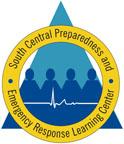
E001: General Environmental Health
Course Description:
This introduction course will cover the definition, mission, principals, the core functions, and essential services of Environmental Public Health. It will include the role of environmental public health in society. Areas to be covered will be brief introduction to general systems theory, environmental health law and regulations, environmental science as it relates to the chemical, physical, and biological changes in the environment. This course will cover the principle of cause and effect, the meaning of risk, the importance of communications, and the goals and activities of both preventive medicine and public health.
Target Audience
Academic Faculty/Staff, Federal Government Employees, State Government Employees, Local Government Employees, Non-Government Employees and Students
Learning Objectives
- Describe the application of Systems Theory to Environmental Public Health
- Give a definition of Environmental Public Health
- Describe the principles of Environmental Health
- List the three core functions of public health and describe each of them
- List the 10 essential services of environmental public health and briefly describe each
- Describe the roles and responsibilities of the environmental health specialist
- Describe how to conduct an environmental health investigation
- Understand the principles of epidemiology
- Understand disease transmission and the how and why of epidemic disease process
- Describe the three components of the disease triangle
- Describe the importance of inspections, field test, measurements, and sampling
- Describe the importance of law and regulations for the environmental health specialist
- Explaining the concept of risk, risk assessment, risk management and risk communications
- Explain the importance of strategic planning and planned evaluation
- Describe principles of enforcement and defined malfeasance, misfeasance, and nonfeasance
Instructors:

Captain Charles S. Otto, III, R.S.
U.S. Public Health Service
Centers For Disease Control And Prevention
National Center For Environmental Health
Environmental Health Services Branch

Sharunda D. Buchanan, PhD
Director, Division of Emergency and Environmental Health Services
National Center for Environmental Health
Centers for Disease Control and Prevention (CDC)
Available Credit
- 3.00 Participation/CETulane Professional and Continuing Education (PaCE) awards 3.00 hour(s) of credit for completing E001: General Environmental Health
Price
Required Hardware/software
System Settings
This course is designed to work most effectively if your computer and internet connection meet certain minimal requirements. This course can be accessed using a Windows 10 PC or a Mac with High Sierra1, Mojave, or Catalina. Pop-up blockers should be disabled when viewing the course. Internet Explorer 11 (for Windows 10), or the current version of Google Chrome, Mozilla Firefox, or Apple Safari (for Windows 10 and or Mac) is required. Many of our courses require Java and JavaScript enabled.
Links to External Websites
Links to websites outside this course will open in a new window or tab. Some browsers may minimize the course window. If this occurs, maximize the course window to return to the course.
Adobe Acrobat Reader (for desktops and laptops)
Adobe Acrobat Reader is required to access some documents in this course. If you need to download a free copy of Acrobat Reader, click here.
Internet Connection Speed
A minimum download speed of 1.5 Mbps is recommended for an optimal experience, which is commonly the speed associated with a basic DSL or a cellular/satellite connection. A faster connection, such as cable or fiber service, with further enhance your online experience. A Wi-Fi connection is generally acceptable, but it is dependent upon one of the two services mentioned above. You can check your internet connection speed at http://www.speedtest.net/.

 Facebook
Facebook X
X LinkedIn
LinkedIn Forward
Forward